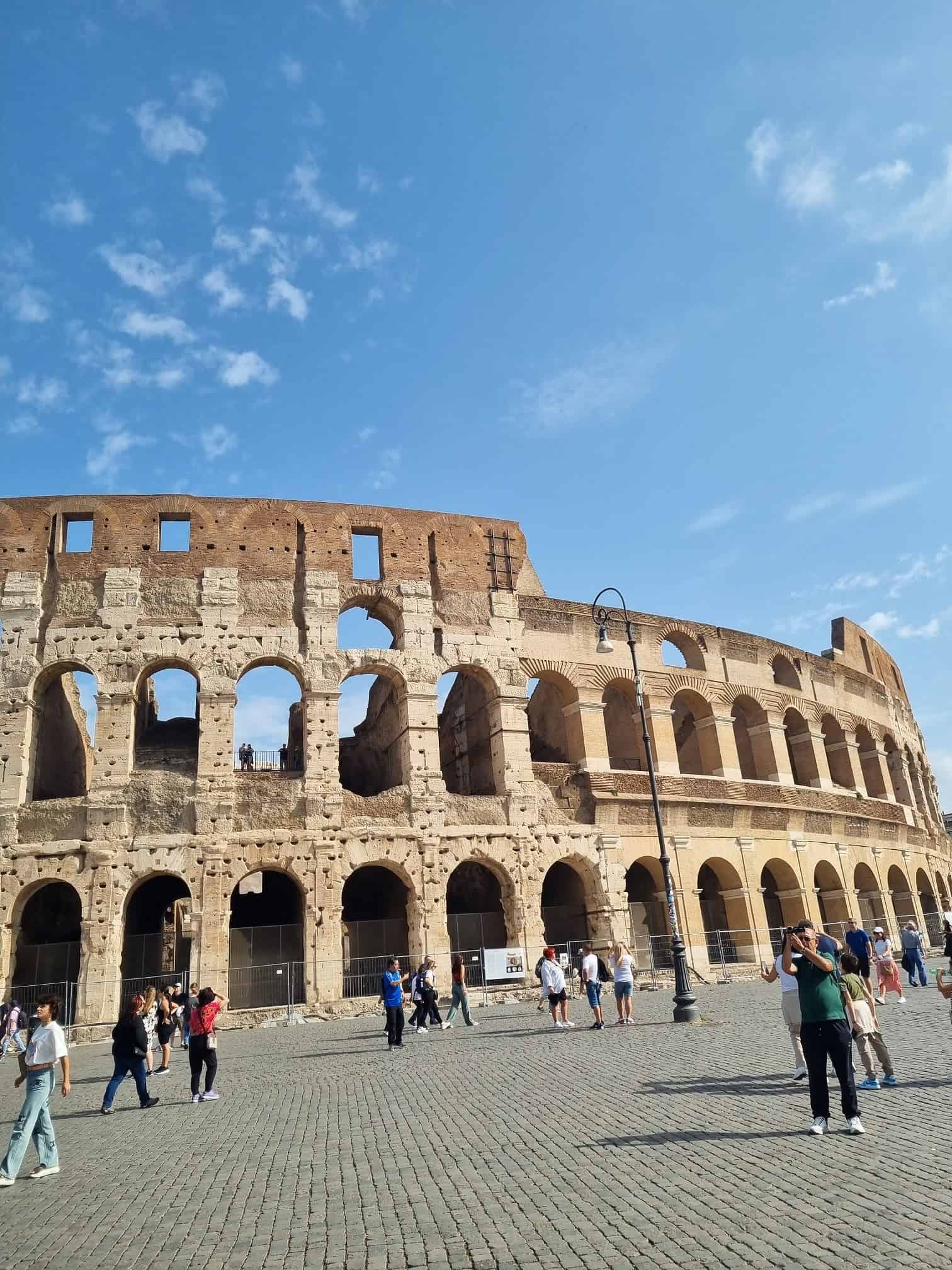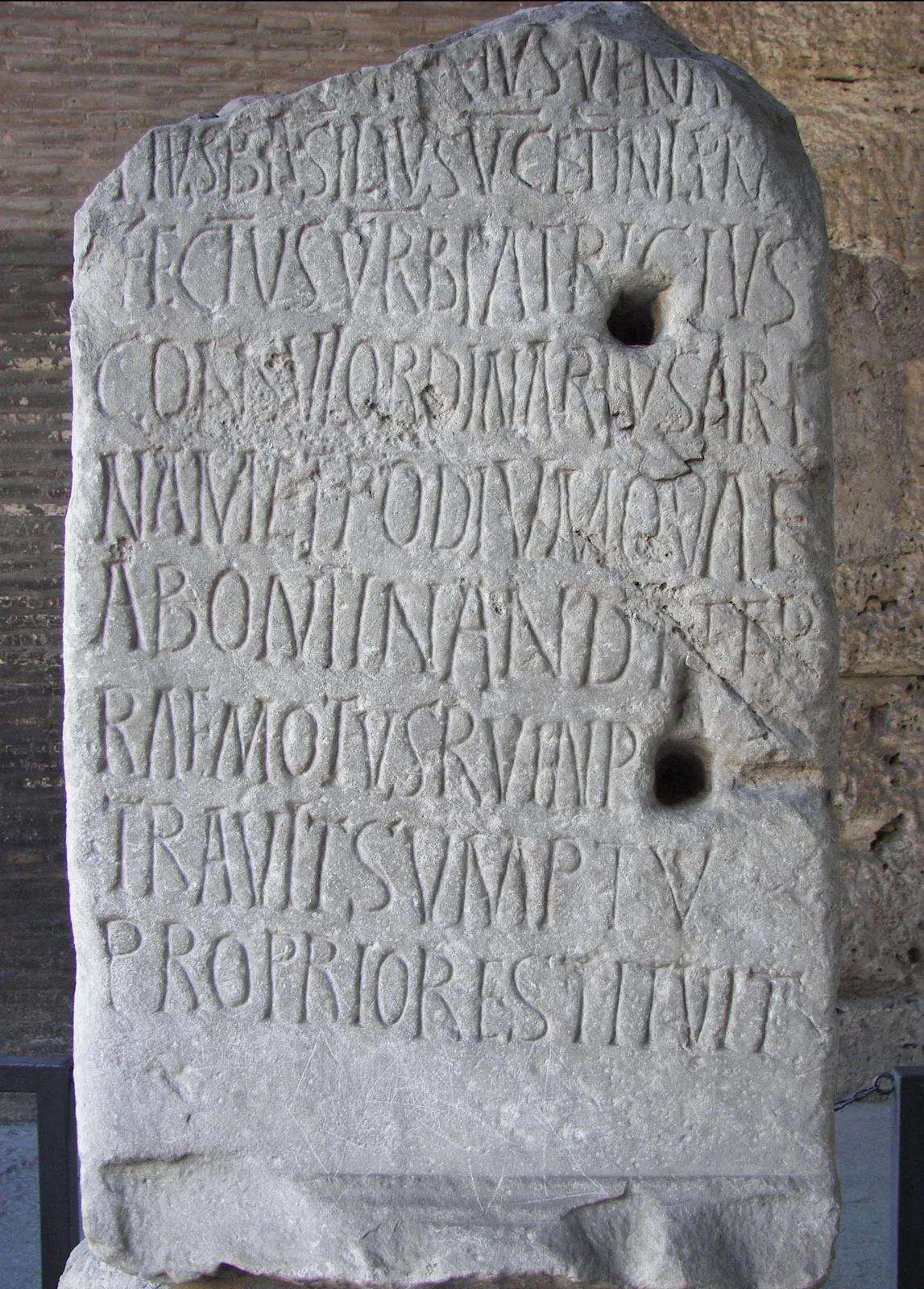By Caitlin O’Sullivan, Subject Specialist Lead – Latin
Every Latin teacher, through countless social interactions, has crafted their own personalised response to the quintessential question: “Isn’t Latin a dead language?” or, perhaps more disheartening, “do they really still teach that?” However, the most important response I have to offer is the one given to the pupils in my classroom – those eager minds I hope to inspire and educate. In the following piece, my intention is to articulate the reasons behind my dedication to imparting the wonders of this exceptionally logical and culturally enriched language.

When confronted with the questions mentioned above, my response always begins by emphasising the profound cultural and historical significance that Latin holds. Right from their initial lesson, pupils are guided to understand that their journey into Latin isn’t solely aimed at helping them fluently converse on the playground (although the recurrent ‘salvē!’ is a delightful occurrence as I walk around the School site). Rather, Latin serves as the gateway to an incredibly rich and diverse cultural heritage.
By learning Latin, children open the door to the literature, history, and philosophy of the Roman Empire, a civilisation that shaped human history. This is undoubtedly the reason that the Cambridge Latin Course is still alive and thriving. In lessons, pupils use their analytical skills to deconstruct a Latin passage and form their English translation, through which they unearth valuable insights into the lives and culture of Pompeii’s inhabitants.

Latin’s impact on Western culture is undeniable; its study forges a profound connection to the roots of our contemporary world. Furthermore, it nurtures an appreciation for classical art, literature, and architecture. Many classical texts and influential works in philosophy, science, and literature were originally written in Latin. A strong foundation in Latin can enable children to read these texts in their original language, gaining a deeper understanding of their content and context.
As our esteemed Head of English wisely and frequently reminds us, effective communication demands a solid linguistic foundation. Latin, often referred to as the linguistic cornerstone of numerous modern languages, including English, French, Spanish, and Italian, plays a pivotal role in this regard. Learning Latin vocabulary equips children with the key to unravelling word origins, facilitating a deeper understanding and mastery of their native tongue.
At Edge Grove, I emphasise to our pupils the value of an educated guess. Learning Latin empowers pupils to demystify the meanings of unfamiliar words by dissecting Latin roots, prefixes, and suffixes. This not only broadens vocabulary but also hones their spelling and grammar skills. With this linguistic foundation, they’re armed with the tools necessary to evolve into adept communicators.
There have been fantastic technological advancements in the teaching of Latin and the learning of vocabulary. Long gone are the days of blind repetition of verb endings (amo, amas, amat…). Four years ago, I introduced the world of Quizlet to our languages department, a transformation that has since become an integral part of our teaching toolkit. Quizlet offers a wide range of study tools, including flashcards, quizzes, practice tests, and games, catering to various learning styles and preferences. Our pupils create and customise their own ‘sets’, tailoring their study materials to match their specific learning goals. Quizlet enables pupils to share study materials with each other, learn collaboratively and group study sessions. Our pupils independently monitor progress, recognise strengths and weaknesses, and receive immediate feedback on their performance.
In the past, there was a tendency to segregate EAL (English as an Additional Language) and SEND (Special Educational Needs and Disabilities) pupils from their Latin-learning peers, resulting in separate timetables. However, modern teaching environments have come to appreciate the inherent value that Latin offers to these pupils and, conversely, the enriching contributions these pupils bring to the classroom.

The unique perspectives and insights provided by EAL pupils significantly enhance the collective learning environment. For instance, a pupil who speaks Russian at home can offer a first-hand connection to the experience of acquiring another inflected language, fostering a sense of shared discovery. Likewise, a Spanish-speaking pupil can swiftly grasp new Latin vocabulary, thriving on the linguistic similarities between the two languages. This cross-cultural exchange and shared enthusiasm for both sharing and learning embody the essence of what every teacher aspires to cultivate in their classroom.
Likewise, nearly all pupils with SEND are now fully integrated into the Latin learning environment. Through thoughtful planning, personalised resources and careful monitoring, pupils are not only able to keep up with the content and pace of the lessons, but thrive. I’ve personally witnessed pupils with ASD (Autism Spectrum Disorder) exhibiting an exceptional aptitude for this language, often surpassing their peers. Latin’s logical framework, characterised by well-defined declensions and conjugations, establishes sets of rules that offer clarity. The language’s highly structured grammar and syntax compel pupils to think methodically and tackle linguistic puzzles.
Mastering Latin, a challenging and prestigious language, can significantly boost any child’s self-confidence. The satisfaction which comes from unravelling intricate texts and articulating ideas in this ancient language lays a robust groundwork for confronting diverse academic and life obstacles. While this skill can prove advantageous in virtually any career pursuit, it holds particular significance for those venturing into fields such as law, medicine, theology, and academia, all of which find their roots in the profound legacy of Latin.
While Latin may not be as commonly taught as some other subjects, its benefits for children are undeniable; from improved language skills and critical thinking abilities to a deeper understanding of history and culture, learning Latin offers a holistic education that enriches a child’s life and prepares them for success in many fields. Encouraging children to embark on the journey of learning Latin is an investment in their future, providing them with enduring skills and a broader perspective on the world.








